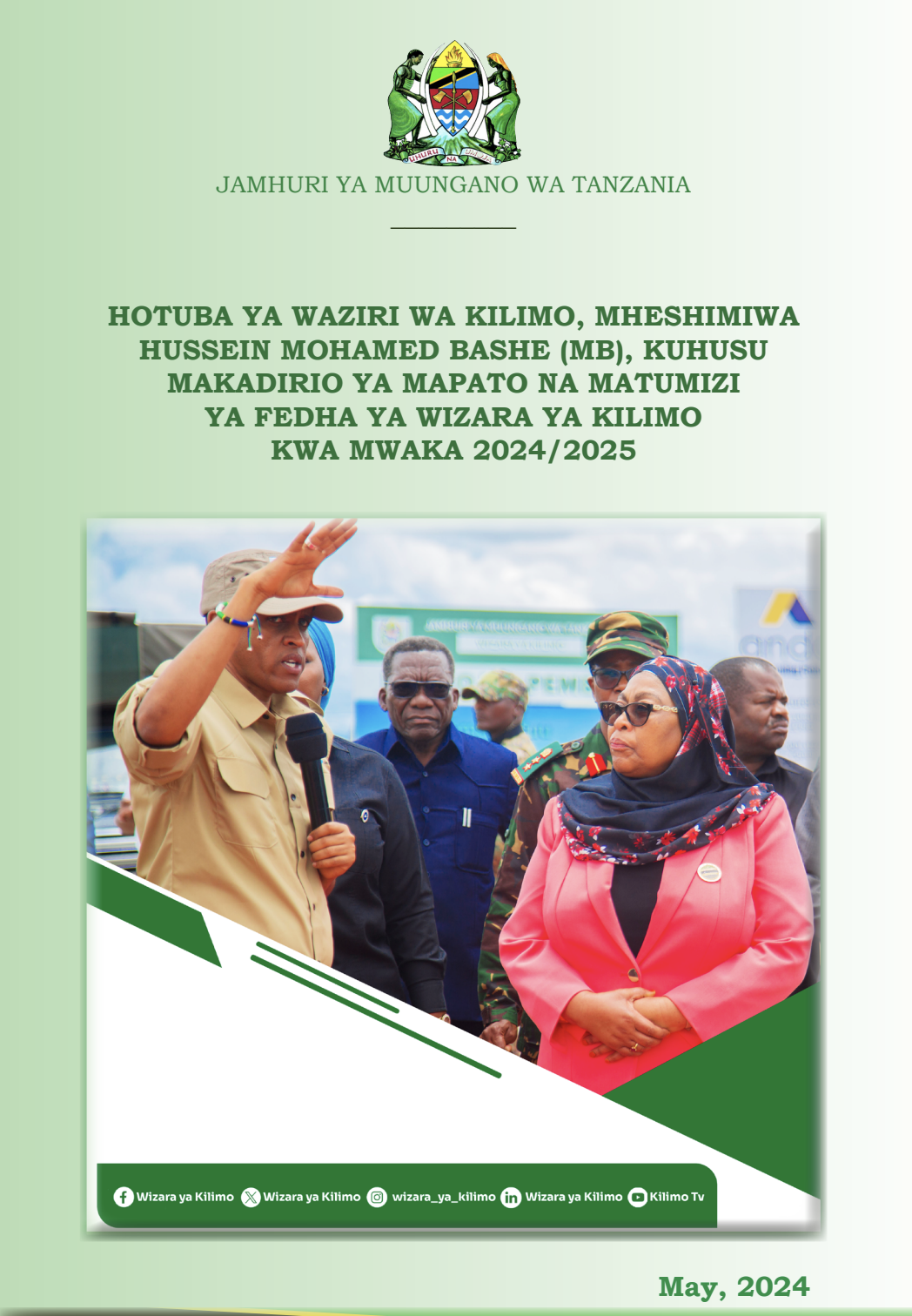#TZ2024/5 Agriculture Budget: Watering the Future, Tanzania’s National Plan to Expand Irrigation Infrastructure
Kilimokwanza.org Team
In response to fluctuating rainfall patterns and the increasing need for stable agricultural output, Tanzania has embarked on an ambitious plan to expand its irrigation infrastructure. This initiative, highlighted by Hon. Hussein Mohamed Bashe, Minister of Agriculture, during his recent budget speech, is aimed at substantially increasing the area of irrigated land to boost crop production and ensure consistent agricultural yields across the country.
During the presentation of the 2024/2025 agricultural budget, Minister Bashe outlined the government’s strategy to extend the reach and efficiency of irrigation systems. “Our objective is to expand irrigated agriculture to ensure a stable and increased production of crops, irrespective of seasonal changes,” Bashe stated. The plan involves both the construction of new irrigation systems and the refurbishment of existing facilities.
Strategic Developments and Investments: The Tanzanian government has set a target to increase the total irrigated area to ensure that agriculture becomes more resilient against climatic variabilities. The initiatives include:
- Building New Dams and Reservoirs: To capture and store more water for agricultural use, especially in regions that suffer from periodic droughts.
- Modernizing Existing Irrigation Channels: Upgrading canals and irrigation channels with modern technology to reduce water loss and increase the efficiency of water use.
- Implementing Drip Irrigation Systems: Promoting water-conserving technologies that deliver water directly to the plant roots, reducing wastage and enhancing water use efficiency.
- Training and Support for Farmers: Providing farmers with the necessary training to manage irrigation systems effectively and to adopt water-efficient cropping techniques.
The expansion of irrigation infrastructure is expected to have a profound impact on Tanzania’s agriculture:
- Increased Crop Yields: Reliable water supply will allow farmers to increase their crop yields and potentially introduce multiple cropping cycles per year.
- Reduction in Crop Failures: With improved irrigation, the dependency on rain-fed agriculture decreases, significantly reducing the risk of crop failures due to drought.
- Economic Growth: Higher yields and better-quality crops can boost farmer incomes, stimulate rural economies, and contribute to national food security.
Challenges and Future Outlook: While the benefits are clear, the expansion of irrigation infrastructure also presents challenges, such as the need for substantial capital investment, potential relocation of communities, and environmental considerations. To address these, the government plans to collaborate with international donors and private sector partners.
Tanzania’s national plan to expand irrigation infrastructure represents a crucial step towards transforming its agricultural sector into a more productive and sustainable system. By increasing the area under irrigation, the country not only aims to stabilize crop production but also to safeguard against the impacts of climate change, securing a food-sufficient future for all Tanzanians. As this initiative progresses, it will be essential to monitor its implementation closely to ensure that it delivers the expected benefits to both farmers and the broader economy.


